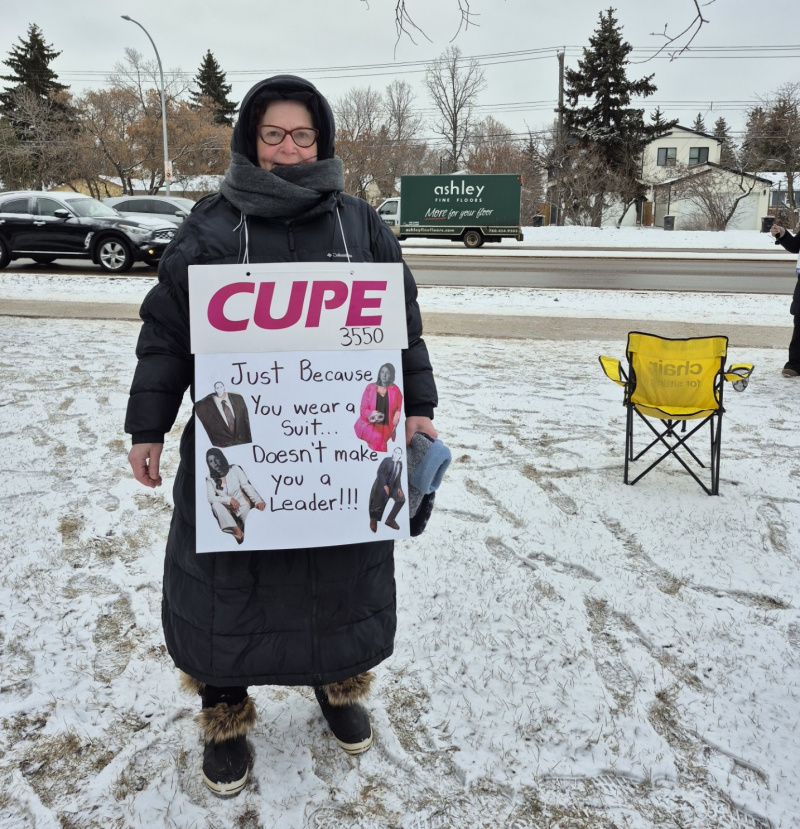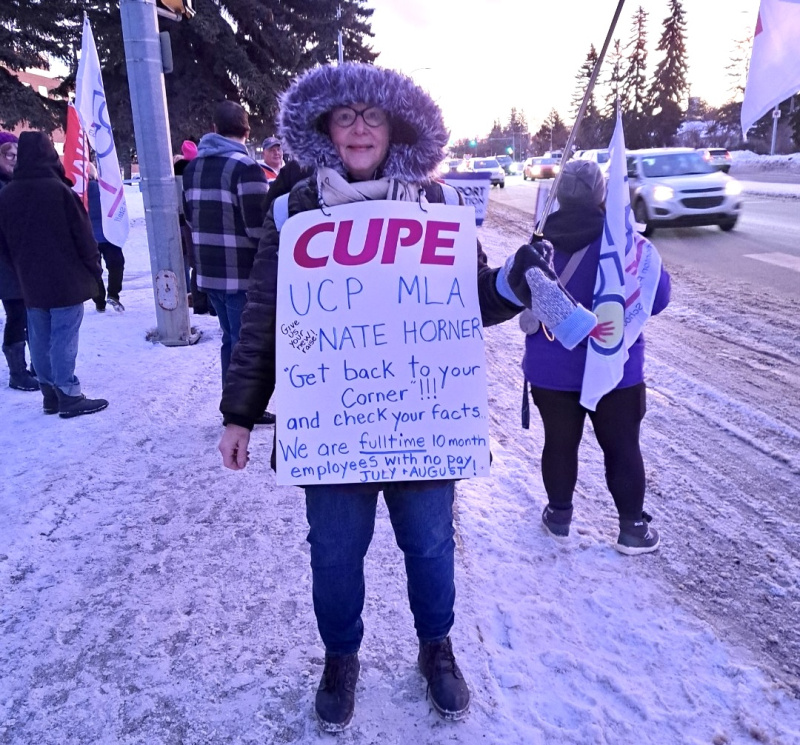By Tamara Aschenbrenner, Communications Staff
The wind bites as Pearl Biggar walks the CUPE picket line, the familiar weight of her old Walkman clutched in her numb fingers. She’s had it since the 1980s, and, like her, it’s still going strong. The radio crackles as she marches.
She’s been here before. Thirty-two years ago, she walked this same fight while pregnant. Now she’s on strike, standing in solidarity with her coworkers and demanding fair wages for educational assistants.
And she’s not backing down.

“I’ve always been in the helping field,” she says. “I’ve always done over and above—that's just who I am.”
That passion started at a young age and grew with her. As a 12-year-old, she volunteered at a nursing home. At 18, she worked in group homes. Now, at 62, Pearl has spent 35 years as an educational assistant, helping students who need extra support.
Yet she is often the one who struggles to make ends meet.
Pearl is also an AUPE member. For decades, she’s worked a second job in group homes, where she cares for people with disabilities. This was her full-time job for eight years before she took classes at Grant MacEwan and started working for Edmonton Public Schools.
“I’ve always done over and above—that's just who I am.”
She still works at least one evening a week, weekends, and all summer, and covers when coworkers call in sick. It’s physically demanding work, especially as she nears retirement, but she keeps going because she loves it—and because she has no other option.
“We shouldn’t always have to work a second job,” she says. “We haven’t had a raise in 10 years.”
Pearl knows firsthand what happens when bosses mistreat experienced workers. During the pandemic, her group home hired private agency staff. The results were disastrous.
“Many of our residents are non-verbal, and we know what makes them happy or what makes them angry,” she says. “But the other agency—they didn’t know our clients.”

Pearl sees the same problems creeping into the school system. The students at her high-needs school rely on seeing familiar faces every day. They need consistency, stability, and support, things that come when school boards allow staff to grow and thrive alongside students.
That’s why Pearl keeps showing up—on the picket line, in the classroom, in the group home, and in the community.
She and her coworkers were on strike for nine weeks, but did that bring them down? No. With their strength and solidarity, they always found ways to lift each other up. They planned potlucks, dessert days, and birthday celebrations.
Pearl even worked with AUPE to organize a barbecue in solidarity with the CUPE members.
"We shouldn't always have to work a second job."
She knows how important bargaining is for us all right now. Just like when you are on a plane, you have to help yourself first if you want to effectively help others.
“If you can’t look after you, you can’t look after everybody,” she says.
And she doesn't just fight for herself. When her daughter-in-law's school in Spruce Grove went on strike, Pearl was right there walking with them.
Would she do it again? If AUPE members go on strike? Absolutely.
“It’s short-term heartache for long-term gain,” she says. “I hope people realize that.”
The Walkman keeps playing. Pearl keeps marching. She has spent decades showing up for others, and she’s not about to stop now.


